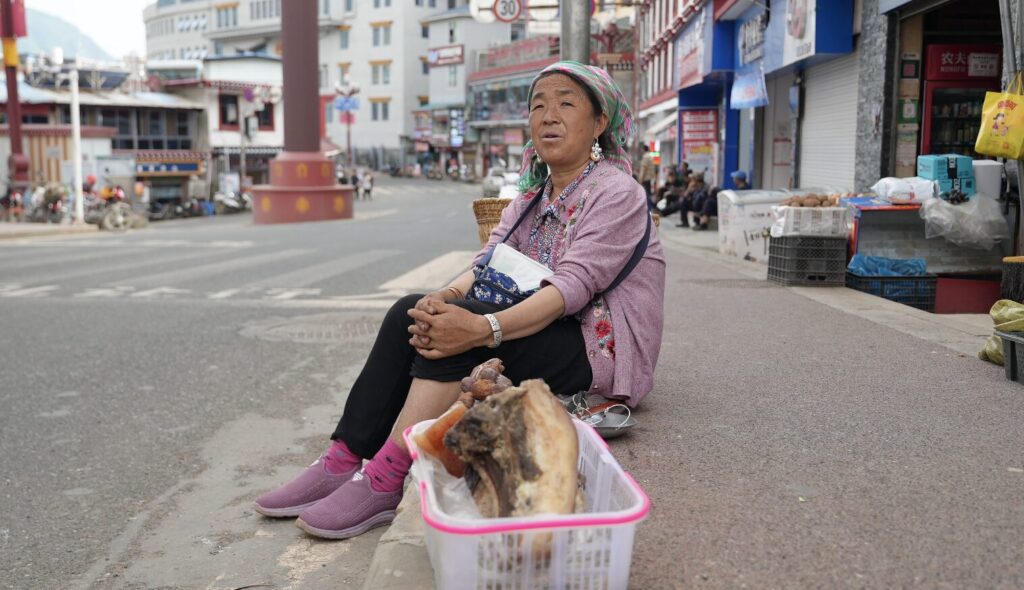Tucked into remote valleys, Muli Village offers a rare glimpse of China’s past, where life remains deeply connected to the rhythms of nature. Here, the modern world seems distant; homes are built of stone and wood, and daily life is governed by the cycles of farming and the seasons. Traditions that have faded elsewhere — from tribal ceremonies to ancient agricultural practices — still pulse strongly through the village. It’s a place where every face seems to tell a story, every weathered path feels ancient, and every shared meal carries the weight of generations. Visiting Muli is like traveling not just through space, but back through time.
The people of Muli are welcoming yet fiercely proud of their heritage. Elders wear traditional clothing and pass down knowledge through storytelling and song, while younger generations balance respect for their roots with the slow creep of modernity. Community ties are strong, with neighbors helping one another through planting, harvest, and celebration. Hospitality is a cornerstone here; visitors are treated like family, invited into homes to share simple but hearty meals. Despite their isolation, the people of Muli live with a spirit of resilience and joy that is deeply inspiring.

Surrounded by dense forests, towering cliffs, and winding rivers, the landscape around Muli is breathtaking in its rawness. Mist often hugs the mountains in the morning, creating an ethereal world of muted greens and silvers. Footpaths lead to hidden waterfalls, sacred groves, and views that stretch forever. Nature here is not just scenery — it’s a vital part of everyday life, woven into the stories, the songs, and the very soul of the village. Muli is a living testament to the beauty of a slower, earthbound existence.

AUTHOR
Get early access, behind-the-scenes content, and bonus interviews.
Help us keep sharing authentic, global Chinese voices.